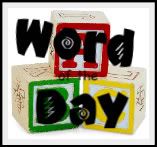 |
| Weekly logs for various stages of brain development and stimulation |
Seven pages.
If only you knew what went into these seven pages.
For the past er, week or so I have devoted almost every spare moment to perfecting this little document.
This may or may not have resulted laundry that didn't get done and other menial tasks put off for another day.
I have been working on making my own, customized versions of weekly logs for the Doman motor and sensory stimulation programs as outlined in How Smart is Your Baby.
Am I the only one who ever asked why the book didn't come with these?
Oh, I know. The book has checklists. But the checklists in the book are a full page per day. And that is a full page per day for each aspect, which actually would come out to three full pages per day. Not only would that make for an unusually high paper budget, but I needed something a little more compact, at a glance, all-in-one.
So I made my own.
I am publishing these documents now as some sort of appeasement to myself for all the hours I spent on them. Don't ask me why it took so long. It just did.
And now that I am done, Hunter might have some more clean socks.
Hopefully some other people will find some benefit out of my toil. If you've got a newborn or a little baby (or are expecting one) and are planning to implement Doman's book, enjoy!
Stage I-III Doman Program Motor & Sensory Logs
If you've never read the book that these logs are meant to be a companion to, they may seem a little, er, weird. I'm certainly not going to even try to explain everything right now, but essentially the exercises on these logs were developed as a means to intentionally help your baby develop and grow, and in turn reach their milestones sooner than if it were left to chance. It is also a means of evaluating your baby's neurological health, noting any issues long before they would be otherwise apparent.
The exercises were developed after years and years of research from the IAHP on how the brain grows and why, with the original focus of helping to heal brain injuries in children. Many of these same exercises are still used today to help grow and heal the brains of brain-injured children.
I will be writing much more about the program in time come!
"And he appointed certain of the Levites to minister before the ark of the LORD, and to record..."
1 Chronicles 16:4
Baby boy #2 is currently 25 weeks, 1 day gestation












